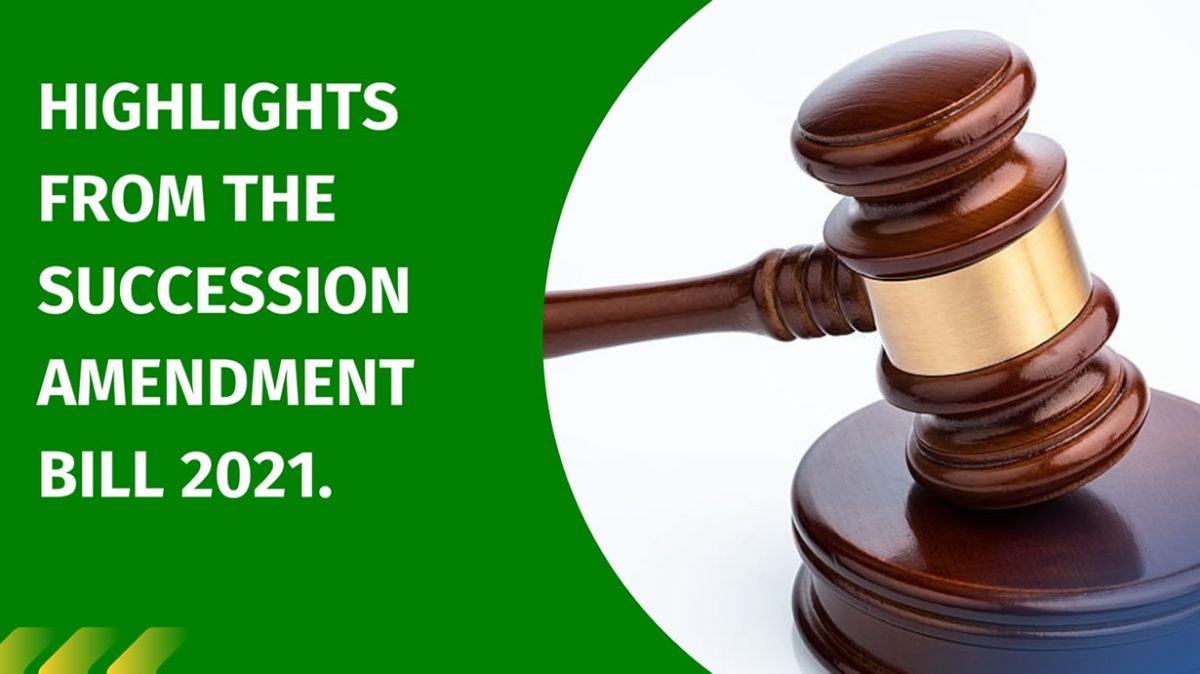The Succession Amendment Bill 2021 seeks to eliminate discrimination based on sex. It introduces gender-neutral language, substitutes discriminatory words, and aligns some sections to the provisions of the Constitution. The amendment upholds article 32 of the constitution (affirmative action). It also removes derogatory language and obsolete words.Highlights of the BillBeneficiaries of a Will:
- No more illegitimate children. All children are acknowledged as per the Bill.
- Minor children, children with disabilities, unmarried children (above 18 years but below 25 years) dependent on the intestate are provided for by the Bill.
- No more notifying the administrator general upon the appointment of a customary heir
- Spouse, dependant relatives, lineal descendants, and customary heir are provided for.
- Spouses, children, lineal descendants, and dependants can apply to the court for maintenance if they are left out in the Will.
Validity of a Will:
- It is now a requirement for each witness to a Will to write his or her name and address on every page of the will in the presence of the testator.
- A will may be made void in case of fraud, undue influence, duress, coercion, mistake of an act, or abuse of a position of trust or vulnerability rather than just fraud or coercion under the current law.
Administration of estates:
- The courts have the discretion to determine whether a person who is otherwise qualified to be granted probate, is fit and proper and allows a court to defer the appointment of an executor or executrix to a later date or to refuse to grant probate where an applicant is not suitable.
- Any person who, before granting of letters of administration or probate, misapplies the estate of a deceased and subject it to loss or damage commits an offence and is subject to a penalty under the Bill.
- Surviving spouses are to have preference over any other person in the administration of the estate of the deceased who dies intestate
- An administrator or executor shall administer the estate for a period not exceeding 2 years unless extended for a further period of 2 years by the court.
- Intermeddling: The Bill broadens the section that provides for intermeddling and makes it an offence. It adds that intermeddling constitutes acts done even before the grant of letters of administration or probate and the penalties for intermeddling.
- Where there are several executors, executrixes, or administrators, their powers shall be exercised jointly and all parties shall sign all the documents necessary for the administration of the estate.
- There is a requirement for the consent of spouses and lineal descendants before disposal of the estate property by administrators
Others:
- By Will, a parent of a minor can appoint a guardian for the minor. The provisions for guardians have been aligned with the children’s Act, cap 59.
Recommendations
- Wills should be prepared with consideration of the provisions in the law.
- People should aim to have valid estate plans in place so that the strict laws of intestacy do not apply to the distribution of their estate.













